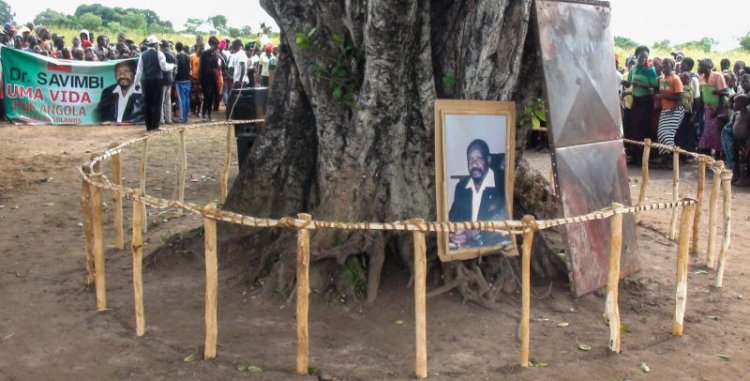Killed in combat exactly 22 years ago, paving the way for the end of the Angolan civil war, Jonas Savimbi's remains have been buried since 2019 in the village of Lopitanga, municipality of Andulo, where the guerrilla who resisted and actively fought against the Popular Movement of Liberation of Angola (MPLA, in power since 1975).
"Our village is even behind, the Government is not helping us, we don't have schools, we don't have a school or a hospital", António Venâncio told Lusa, recalling that it is in the Tchilesso mission, more than 10 kilometers away, that public services are located.
These days, Lopitanga has returned to the media scene, with funeral ceremonies in the local cemetery that "give visibility" to the village, but at the same time translate into a "penalty" of local citizens due to the lack of public services, considers the resident.
This sentiment is shared by many other places. The residents of that land, 30 kilometers from the municipality of Andulo, province of Bié, central/southern Angola, say they are "abandoned" by the local authorities because "almost everything is missing" in the region where Jonas Savimbi is buried, believing that the situation is consequence of this being a "bastion" of UNITA.
The central act of the celebrations for the 20th anniversary of the death of Jonas Savimbi, who died in combat on February 22, 2002, took place in Lopitanga, where the founding president of UNITA was buried in June 2019.
Hundreds of citizens from the region flocked to the site, last Saturday, to attend the funeral ceremony of Elias Salupeto Pena, former head of the UNITA delegation in the Joint Political-Military Commission and lamented the "lack of almost everything".
According to the people, the lack of public services, such as schools, hospitals, electricity, social services and others in Lopitanga, where access is made only by trails and roads, contributes to the region's underdevelopment.
"First, we need hospitals here in this village, schools for children, because children only follow their mothers to the fields because they don't have schools," Barroso Kandimba, 45, who has lived in Lopitanga since 2004, told Lusa.
"Children aged 15 and over are able to go to school on foot, walking more than 10 kilometers, but those under age do not reach (school)," he said.
In Lopitanga for 18 years, Kandimba recalls that the region does not have a hospital, a situation that means that the people, even when they are sick, have to walk kilometers to the Tchilesso mission to access medical care.
The imposing tomb of Jonas Savimbi on the site, built by his eldest son Cheya Sakaita Savimbi, a few meters from the cemetery where his parents, cousins and other relatives are buried, blends in with a sanctuary whose cleanliness and security of space are guaranteed by militants of the UNITA in that region.
This attention from the opposition party then has concrete consequences, which are reflected in the lack of public investment, accused António Venâncio.
"Here, when someone is sick, they have to take you to Tchilesso and walking is complicated, there are people who died along the way. Here the situation is really bad", he lamented.
Asked about the degree of development in the region after the funeral of UNITA's founding leader, the 41-year-old peasant, he replied: "There is almost no development, nothing has changed."
"I don't know if tomorrow or the day after the Government will do something, but at the moment it is really bad", he pointed out.
Regarding the general elections in Angola, scheduled for the second half of August, António Venâncio is not optimistic: "We'll see if tomorrow or the day there will be a change, but if it continues it's really bad".
The river that crosses the region is a source of water for consumption by local residents, many of whom are engaged in fishing and subsistence agriculture.
The lack of schools, hospitals, medicines and the absence of authorities in the region was also highlighted by the elder Américo José, 60, who questioned the lack of support for Lopitanga.
"We don't even have medicines here, but in other places they are supporting", noted the peasant.







